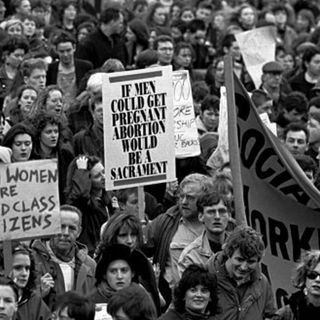
Air India Flight Attendant Reports Years of Sexual Harassment From Top Exec
With no action taken by the airline’s internal committees.

Yesterday, news broke that an Air India flight attendant had written to Civil Aviation Minister Suresh Prabhu to report sexual harassment at the hands of a senior executive. In the letter, the woman compares the harassment and abuse to that allegedly of Harvey Weinstein, the Hollywood movie producer accused by of sexual harassment and assault.
The woman goes on to detail six years of an all-to familiar cycle: repeated sexually predatory behavior toward many women reported to the Air India CDM — with no action taken. Per The Indian Express: “this senior executive is a predator and has sexually propositioned me, abused me, denied me positions and privileges after I rejected his advances and he had made my life a misery at work and continues to do so,” she wrote. The letter goes on: “The executive used abusive languages at other women in my presence, spoken of sexual acts with me and other women and has tried to compel women in his office (including me) to come and drink with him at various bars and many of us have been forced to do so.”
In recognition of the woman’s complaint, Prabhu tweeted that he had “Asked @airindiain CMD to immediately address this issue. If necessary, will appoint another committee.”
Clearly, another committee is necessary, given that the woman says she reported the behavior to Air India CDM as far back as September 2017, and, per the Times of India, “during the mockery of inquiry… the lady chairperson of the committee had to temerity to respond ‘you know how he talks. He has even flirted with me like this so many times.’”
This situation is practically a case study of the societal forces that trap women in sexually abusive situations. The woman, a single mother, likely did not have the luxury of simply quitting her job (nor should she; it’s not her responsibility to pay the price of another’s misconduct). Instead, she took the risk of reporting the abusive conduct through formal, company channels ostensibly designed to support women — only to receive none.
It’s also a case study of a law in trouble. While the Sexual Harassment of Women at Workplace Act of 2013 had good intentions — and its existence is certainly better than its absence — it’s actual effect has been mediocre; a survey conducted by the Indian National Bar Association three years after the law’s passage, across India’s private sector, concluded that the workplace was the most sexually aggressive place in women’s lives. Little wonder that other analysis has found implementation of the law has fallen flat.
As the #MeToo movement that emerged from the accusations against Harvey Weinstein gained global speed over the past six months, India has been eerily silent, especially when it comes to the recognition and legitimization of women’s claims against institutionally more powerful aggressors. This woman’s experience, and the immediate reaction from a government official, hopefully helps shift the 2013 mandate from being a regulatory box businesses must check, to being a practical and essential part of employee and business protection. At the very least, Indian women deserve sexual harassment committees that don’t use the tired “boys will be boys” excuse for abuse. It seems Air India might be publicly shamed into providing one.
Liesl Goecker is The Swaddle's managing editor.
Related


NCERT Textbook Updates Conflate Indian With Hindu
